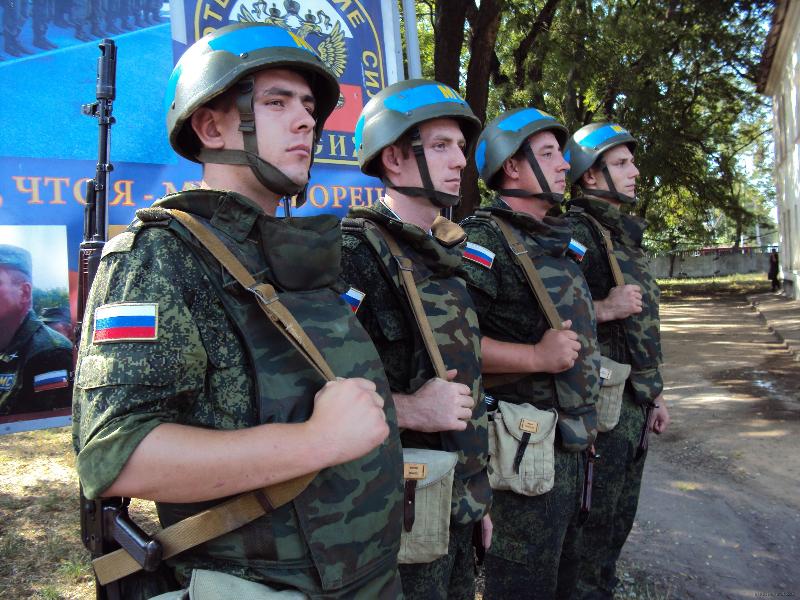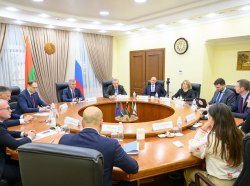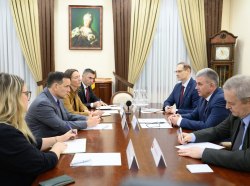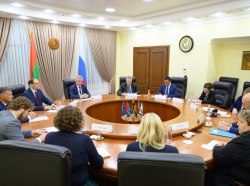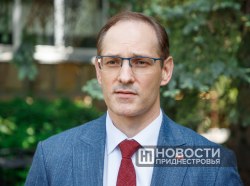Accusations against Russia of unleashing the Pridnestrovian conflict are nothing more than preparation for a media campaign that should accompany the elimination of the Russian military presence in the region. This was stated by the Professor of the Russian Academy of National Economy and Public Administration under the President of the Russian Federation - Doctor of Political Sciences Natalya Kharitonova in the program Open Air on the Russian TV channel Zvezda.
“Now several events have coincided at once,” she said. – “We are waiting for the American Ambassador to Moldova, who will run this whole story in the region, the Deputy Prime Minister for Reintegration was finally appointed last week. On the same day, an individual plan of cooperation with NATO was signed. And now Russia and Pridnestrovie naturally expect a wave of provocations against peacekeepers and the OGRF.”
According to Natalya Kharitonova, a noticeable aggravation of the situation in the Security Zone speaks well for this perspective. In particular, the incident with an attempt to capture the Pridnestrovian border guards in the Dubossary Region on December 2 last year, in which a unit of the peacekeeping forces of Moldova was involved without the Joint Military Command and the JCC knowledge. Another incident: a column of 100mm cannons` recent appearance in the Security Zone.
“For Moldova, Pridnestrovie is kind of a bogey that can justify all its economic and political failures,” the Russian political scientist noted. – “Yet now we are dealing with a different kind of problem. The West wants to eliminate the foothold of Russian influence in this region. It is important for them that there is not a single Russian military in Eastern Europe.”
Other experts who took part in the program agreed with Natalya Kharitonova.
“Sandu's statement, of course, is historically illiterate, but one must look at the context, which it was made,” Russian publicist Dmitry Rodionov said, in particular. – “And it was done two days after the signing of the plan for interaction with NATO, where it is directly stated that the goal of Chisinau is all Russian troops` withdrawal from the territory of Moldova. Even before her election, she said that this was almost the main point of her program. An ideological platform is being developed, based on which they will try to somehow denigrate our peacekeepers. Take, for example, cannon artillery. It is clear that they are not ready to fight, they will not even be able to fight with Pridnestrovie. Yet they can make some kind of provocation to get our hit in return and then say: look, the peacekeeping operation is ineffective.”
Maya Sandu's statement was made on January 21 on the air of the Romanian TV channel PRO TV.
“The war in Pridnestrovie was an attempt to stop the process of gaining independence by the Republic of Moldova,” the President of the Republic of Moldova said. - “The forces that did not want us to become independent from the USSR tried to stop this process… It is very clear to everyone that the Russian Federation sent its people for these actions against Moldova.”
In Pridnestrovie, the head of state and the defenders of the republic advised the President of Moldova to study history. The Moldovan-Pridnestrovian conflict provoked the adoption of several bills introducing segregation by language by Moldova. In response to Pridnestrovians` demands to guarantee equality and find a compromise on state symbols, Chisinau used force. The escalation of the conflict led to war - Moldova began large-scale hostilities against Pridnestrovie in March 1992.
At the beginning of the Moldovan-Pridnestrovian war, the Soviet Union no longer existed. The USSR was dissolved on December 26, 1991, and hostilities in Pridnestrovie began on the night of March 1-2, 1992, that is, more than two months later. And it began, as the President of the PMR Vadim Krasnoselsky reminded, with an attack by the Moldovan special forces on the officers` house, in which the families of the military personnel of the 14th Army lived, which came under the jurisdiction of Russia in April 1992, that is, a month after the invasion of the security forces of Moldova. Nevertheless, the army, on orders from Moscow, continued to remain neutral and only intervened after the attack of the armed forces of Moldova on the town of Bendery. On July 23, 1992, the presidents of Moldova and Russia signed an agreement on the principles of Pridnestrovian conflict peaceful settlement, which provided for the entry of Russian peacekeepers. The peacekeeping operation began on August 1, 1992. Over the past almost 30 years, there has not been recorded a single armed confrontation between the parties, while the operation is recognized as the most successful in Europe.

